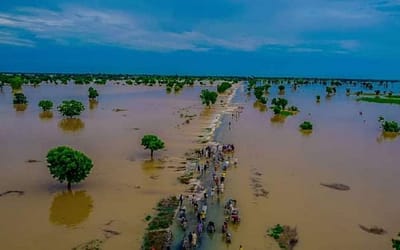
Pakistan is the second-most polluted country in the world. Its second largest city, Lahore, is also one of cities with the world’s worst air quality index records.
Malpractices such as trash burning, lack of eco-friendly vehicles, inefficient use of energy, unreliable air quality monitors contribute to the issue. Furthermore, the agreement to develop nine coal-fired power plant projects under the China-Pakistan Economic Corridor (CPEC) has exacerbated air quality in Pakistan. The World Air Quality Index (AQI) 2020 reported that the Punjab province in Pakistan is among the top 5 most polluted areas in the world. There are many correlated factors that enable the air pollution condition to worsen in Pakistan, however, the lack of waste management and clean energy generation are the biggest hurdles the country faces to improve its air quality.
As reported, low-to-middle income nations have the greatest air pollution-related death rates. There are significant disparities in the intensity of air pollution around the world, which is a problem for both public health and ecosystems. Although we have all been taught about pollution, waste management and environmental sustainability ever since we were in school, implementation of environmental regulation laws on such issues have been limited in Pakistan. Burning crop residue is a very prevalent and largely accepted practice in the country, particularly in its rice-wheat region. A fifth of Pakistan’s GDP comes from agriculture, which is mainly concentrated in the Punjab province. Every year, between October and January, 3.6 to 5 million tonnes of the 8.5 million tonnes of rice residue generated are burned to prepare the land for wheat planting. Despite reservations about health and safety risks, the quickest and least expensive method of preparing fields for next planting seasons is still burning stubble.
In 2018, Lahore was ranked 10 in the World Air Quality Report by IQAir AirVisual. It has been reported that the pollution is caused due to the burning of agricultural leftovers and other waste products, industrial emissions from vehicles, brick kiln smoke, construction site dust, and crop residue. Over the past ten years, Lahore’s air quality has declined as an estimated 70% of its trees were cut down to create room for additional residents. According to a 2019 assessment by the U.N. Food and Agriculture Organization, the vehicles still mostly run on a sort of highly polluting sulphur-laden gas that generates around 40% of the air pollution in Lahore and the nearby province of the Punjab. Pakistan has been unable to develop a well functioning environmental regulatory system due to being a low-middle income country. The air pollution affects all citizens and sectors of the country, health and agriculture being the most affected.

LAHORE: An environment ministry official provides masks to children. Dangerously poor air quality forced the provincial government to close all schools in the city for the day. — (Dawn, 2019)
To make matters worse, Pakistan has been importing massive amounts of hazardous waste from several countries, including the United Kingdom, Iran, the United Arab Emirates and Saudi Arabia, eventually becoming the dumping ground for hazardous waste, resulting in serious environmental and health concerns. The lack of waste management at ground level makes it even harder for a country like Pakistan to develop a behaviour change in its citizens of allowing proper composting rather than burning the waste. While the Senate Standing Committee on Climate Change works on preventing Pakistan becoming a dumping ground, it should work harder on the policies that increase accessibility of waste collection and disposal (recycling/composting) in every city.
The typical Pakistanis life expectancy is reduced by 4.3 years due to air pollution compared to what it would have been if the World Health Organization (WHO) recommendation on air quality had been followed. Unfortunately, the average life expectancy in Pakistan is substantially lower than in some regions, where the worst air pollution reduces it by over 7 years. According to the UN Pakistan has suffered from one of the highest death tolls in the world from air pollution in 2015. It is estimated that thousands have lost their lives because of the high level of fine particles in the air.
We breathe the same air; therefore, we must seek environmental justice. Researchers, scientists and industrialists should also collaborate to expedite sustainability on provincial and national level. Advanced technology must be utilized to develop renewable energy and clean energy supply options should be readily available to industrialists and households. The authorities and citizens must also establish a proper waste management system so that the trash that should be recycled and composed is not burned or dumped onto large dumping grounds.



